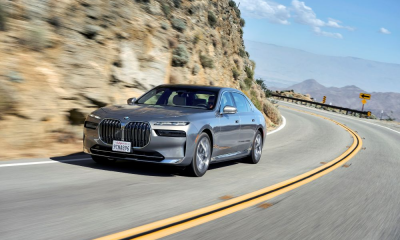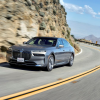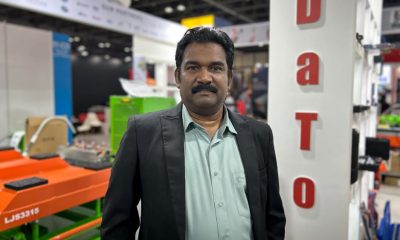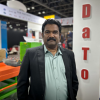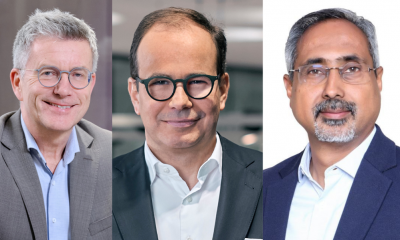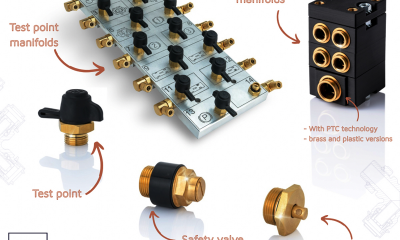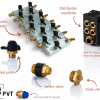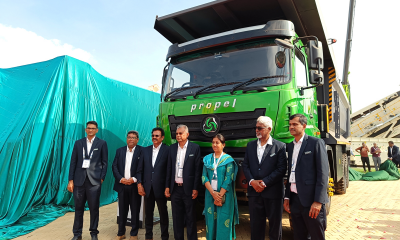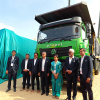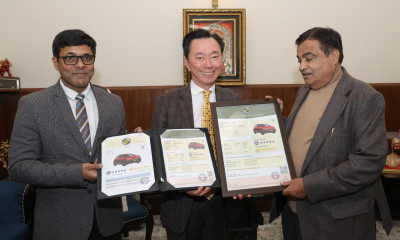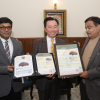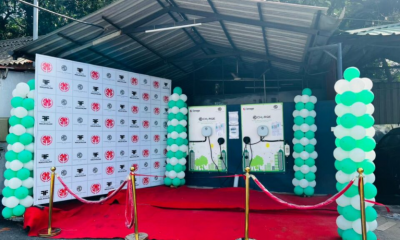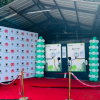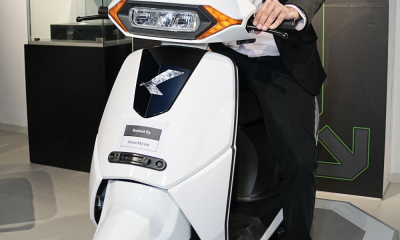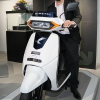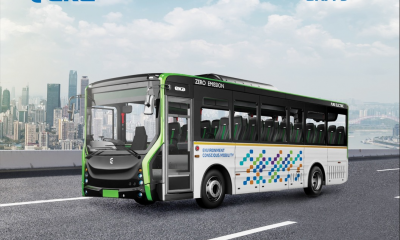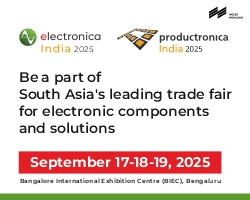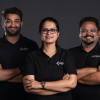At Busworld Europe 2025, the world’s biggest platform for the bus and coach industry, Indian supplier of fibreglass products Mecolam Engineering made its mark among a select few exhibitors representing India on the global stage. For Managing Director Binz Mathew, the participation signals not just ambition but confidence — confidence born from quality improvements, process innovation, and growing international credibility.
“The main reason we are here is the confidence we now have in our quality — especially in our high-gloss, gel coat-finished LRTM products,” says Mathew. “If we didn’t believe our products were ready for the global market, we wouldn’t have come.”
Evolving Fiberglass Manufacturing in India
Mecolam specializes in fiberglass-reinforced plastic (FRP) components for buses and air-conditioning units. Traditionally, most FRP parts in India were made using the open-mold process — a single-sided method that often led to inconsistent quality. Mecolam, however, has raised the bar with Light Resin Transfer Molding (LRTM), a process that delivers two-sided smooth finishes comparable to injection-molded parts.
“LRTM has been around globally for a while,” explains Mathew, “but the challenge was mastering it consistently in India. We’ve done that now; and that’s what we’re showcasing here.”
The company’s LRTM-based parts don’t require painting thanks to their gel coat finish, offering superior surface quality and reducing overall production time and cost.
A Strong Domestic Footprint
In India, Mecolam counts Tata Motors, Trans ACNR, Eberspacher, SM Kannappa, and ACGL among its major customers. Its parts include dashboards, bumpers, roof and side panels, and AC covers for buses. The company operates three facilities; at Dharwad (its largest), Bengaluru, and Malur; all located in Karnataka.
Together, the plants employ around 175 people and can produce 20 complete bus body kits per day, equivalent to around 12 – 15 currently utilized, reflecting steady capacity use.
“We’ve converted our capacity in terms of bus body kits; from front to rear, everything,” says Mathew. “That’s how we measure our efficiency.”
Competing Beyond Borders
Mecolam’s growing confidence is not unfounded. Over the past few years, several Indian component manufacturers have sought to replace Chinese suppliers, and Mecolam has benefitted from that shift.
“Earlier, even when some global customers came to us, they felt the Chinese were better,” recalls Mathew. “But we proved them wrong. Today, they prefer our quality; and we’re even cheaper than Chinese suppliers.”
The company already exports to a few clients in Europe but aims to expand its international share beyond the current 5%. The participation at Busworld Europe, according to Mathew, is a crucial step toward that goal.
“We’ve already started receiving enquiries from international players; including some from China,” he says with a laugh. “The only challenge is, we don’t speak Chinese!”
The Composite Advantage in an Electric Future
As the global shift toward electric mobility accelerates, Mecolam sees composite materials as central to the next generation of bus and coach manufacturing.
“The future is electric; and composites will play a major role there,” Mathew emphasizes. “The specific gravity of fiberglass is about one-fourth of steel, so you get huge weight savings with equivalent strength. That’s critical for EVs.”
Compared to plastics, fiberglass also offers an advantage in tooling costs, as plastic molds can be 100 – 200 times more expensive to develop, making composites a more feasible choice for bus and coach OEMs seeking scalability.
Growing Opportunities and Open Partnerships
While Mecolam currently records an annual turnover of around ₹20 crore, Mathew’s ambitions extend far beyond numbers. The company is open to collaborations, joint ventures, or technology partnerships that can accelerate its growth both in India and abroad.
“We are open to meaningful partnerships if someone comes to us with a good proposal, we can set up new plants anywhere,” Mathew asserts. “We are flexible and ready to expand wherever opportunities arise.”
He adds that their manufacturing practices have drawn praise from several international visitors including top executives from OEMs; who have been impressed by the company’s facility standards.
“We had a visit from a major European bus manufacturer,” he recalls. “Their Managing Director told us that our facility was better maintained than their own composite division. That’s the level we’ve reached.”
Refining the Competitive Edge
Beyond bus body components, Mecolam also serves the air-conditioning segment, manufacturing AC covers and refrigeration containers for major HVAC suppliers. This diversification has helped it build resilience and expand its market footprint.
“Most of the major AC manufacturers source their fiberglass parts from us,” Mathew notes. “That’s another area where we’ve built strong leadership in India.”
Despite rising competition, Mathew welcomes industry attention. “It’s good for the industry,” he says. “Even if new players come in, we’ll still lead by quality.”
India’s Global Moment in Composites
Mathew believes Indian suppliers are finally earning the global recognition they deserve. He recounts how a European client once shifted production back to India after facing quality issues with other suppliers; and how Mecolam’s work helped restore confidence in Indian-made parts.
“They lost their export orders due to quality problems,” he says. “Then they came to us. We made the parts, and they won back the orders. Their president personally visited our plant and called it one of the best-kept fiberglass facilities in India.”
Such validation, he says, motivates the company to continue innovating and improving. “We’re proud to show that India can match and even surpass global standards,” Mathew concludes. “That’s why we’re here; to represent the best of Indian composites to the world.”
In addition to its regular product line, Mecolam also supplies fibreglass swimming pools under the brand name Binz & Boris.


